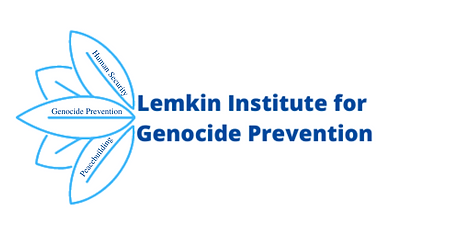Activists Concerned About Reports of Rohingya Refugees Being Coerced to Repatriate to Myanmar

Rights activists have expressed concerns about reports that Rohingya refugees in Bangladesh are being coerced and offered cash incentives by the Bangladesh government to return to Myanmar. Bangladesh "must immediately suspend" the pilot repatriation project for Rohingya refugees to return to Myanmar, a senior U.N. expert said.
"In the past fortnight, [Bangladeshi] government officials threatened several members of our [Rohingya] community with violence if we do not return to Myanmar," a Rohingya on Bay of Bengal Island Bhasan Char — who fears reprisal and does not want to be identified — told VOA.
In a news release issued June 8 by the office of the U.N. high commissioner for human rights, the special rapporteur on human rights in Myanmar, Tom Andrews, said reports have surfaced that Bangladeshi authorities are using "deceptive and coercive measures" to compel Rohingya refugees to return to Myanmar.
"Conditions in Myanmar are anything but conducive for the safe, dignified, sustainable, and voluntary return of Rohingya refugees," Andrews said in the statement.
"I implore Bangladesh to immediately suspend the repatriation pilot programme."
Phil Robertson, Asia division deputy director of Human Rights Watch (HRW), noted that Bangladesh is "squeezing the Rohingya camp residents economically, abusing their rights, and making the refugees as miserable and desperate as possible" in the hope they will accept "Myanmar's woefully unacceptable offer" for repatriation.
Third attempt at repatriation
After two previous efforts to send the Rohingya back to Myanmar failed in 2018 and 2019, Myanmar and Bangladesh are making another effort to repatriate about 1,100 Rohingya refugees.
Over the past couple of weeks, however, it has come to light that Rohingyas are not willing to return to Myanmar given the current situation, and the Bangladeshi officials are resorting to coercive tactics.
"Two weeks ago, some [Bangladeshi] government officials told us through some [Rohingya] cluster focal leaders that each Rohingya family would be offered U.S. $2,000 if they repatriated to Myanmar. The news brought relief to many of us who have been struggling to find income opportunities in Bangladesh. Like many other Rohingyas, I enrolled myself and my family for repatriation," an anonymous Rohingya refugee told VOA on Monday.
"But after a high Bangladeshi official a few days ago clarified that there was no such offer of cash incentive for the repatriating Rohingyas from the Bangladesh government, I have decided to withdraw from the repatriation list."
Other Rohingyas said they are scared to return to Myanmar at this time.
"We have overheard that the military junta intends to confine us to camps and issue a National Verification Card [NVC] that would render us illegal immigrants in our own homeland. These reports have created fear and doubts among the families who enlisted their names for repatriation, and now they all want to withdraw from the list," another Bhasan Char-based Rohingya refugee told VOA.
Citizenship rights
The refugees are facing "indescribable hardships" in Bangladesh, and they all want to return to their "ancestral land" in Myanmar once the government officially recognizes the community as an "official ethnicity as Rohingya in the parliament," Cox's Bazar-based Rohingya community leader and human rights defender Htway Lwin said.
"We insist on the repatriation process including rehabilitating Rohingya in Sittwe's IDP [internally displaced people] camps to their original villages, granting them full citizenship rights, ensuring their safety, religious freedom, and freedom of movement, as well as access to education and health care — the same rights being enjoying by the other 135 ethnic groups in Myanmar," Lwin told VOA.
After violence displaced hundreds of thousands of Rohingya in 2017, Myanmar authorities interned many of them in an open-air detention camp in Sittwe where 130,000 of them still live in abusive and squalid conditions.
"If these demands are not guaranteed, the repatriation process mediated by China could result in a disastrous situation involving three countries, negatively impacting the Rohingya community," he noted.
Mohammed Mizanur Rahman, Bangladesh's refugee relief and repatriation commissioner in Cox's Bazar, said Tuesday the repatriation-related preparation was "in process."
"This is not true that the Rohingya are being coerced to return to Myanmar. And, we have not offered any cash incentive to anyone for returning to Myanmar," Rahman told VOA.

The director of rights group Fortify Rights, John Quinley, told VOA, "The Myanmar junta recently gave out pamphlets to Rohingya promoting the National Verification Card [NVC] process and told refugees that if they return to Myanmar, they must accept NVCs. The reality is NVCs do not allow Rohingya to self-identify and label the Rohingya as foreigners in their own land."
Myanmar's State Administration Council junta has fundamentally failed to address any of the key Rohingya demands for their voluntary return, HRW's Robertson said.
"The Rohingya refugees are facing the classic 'out of the frying pan, and into the fire' situation, with Bangladesh officials apparently threatening they will face violence if they stay," Robertson told VOA.
"But the Rohingya know they could face atrocities and worse if they return to Myanmar under the control of the Tatmadaw, who butchered, raped, and burned them out of Rakhine state in 2017."
(c) 2023, VOA News
https://www.voanews.com/a/activists-concerned-about-reports-of-rohingya-refugees-being-coerced-to-repatriate-to-myanmar-/7136575.html#:~:text=Rights%20activists%20have%20expressed%20concerns,government%20to%20return%20to%20Myanmar.



